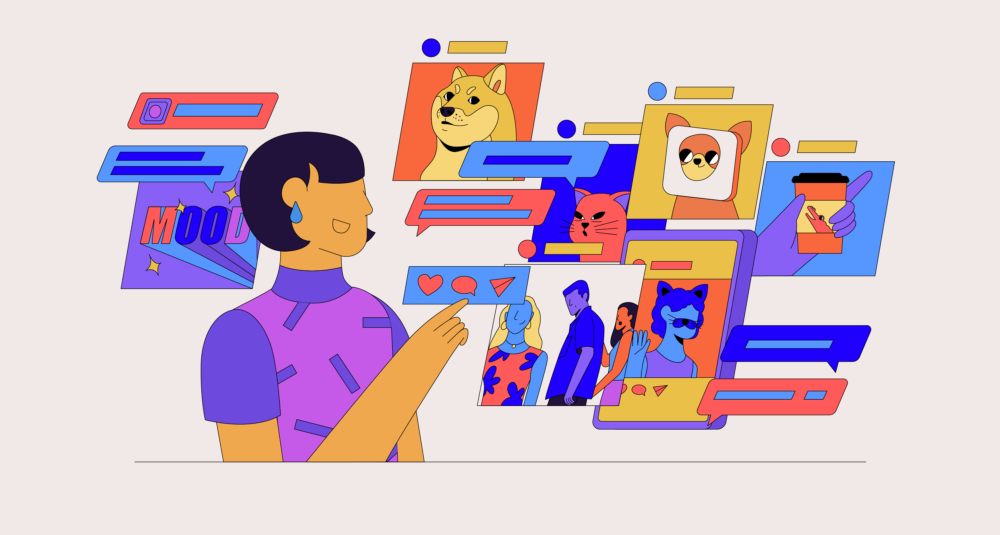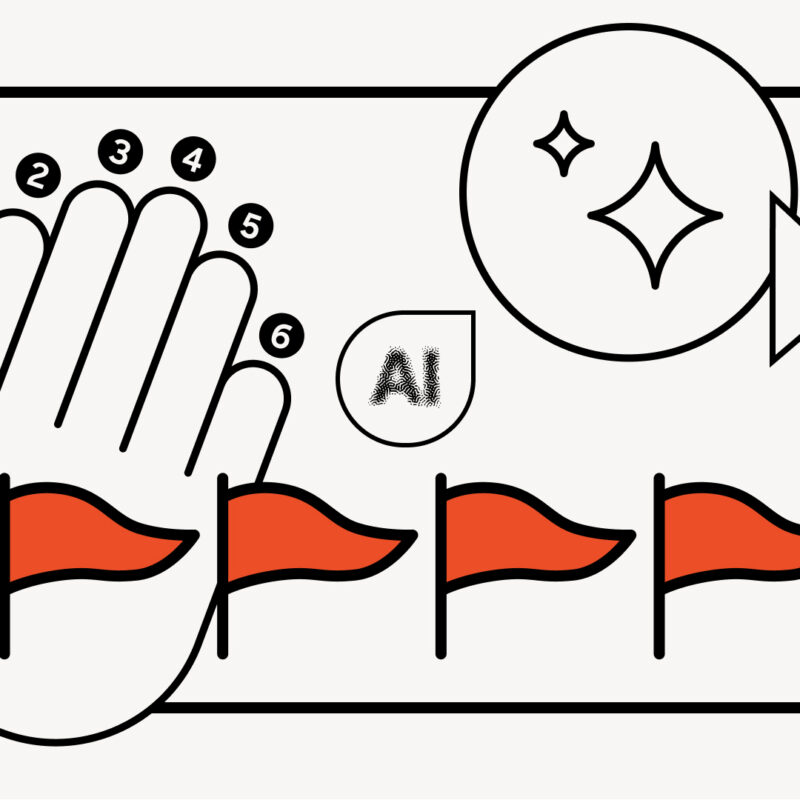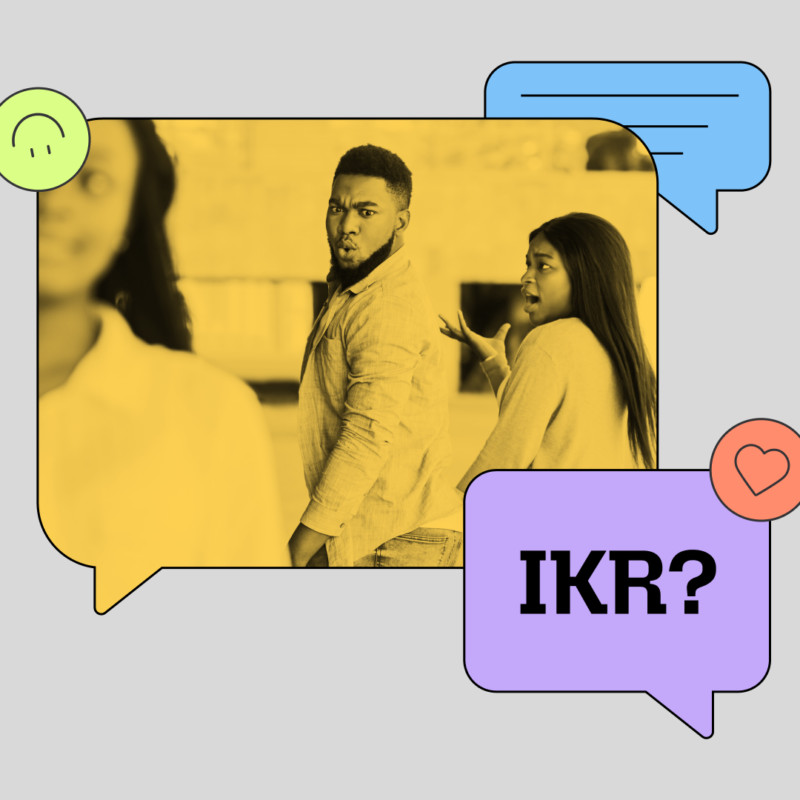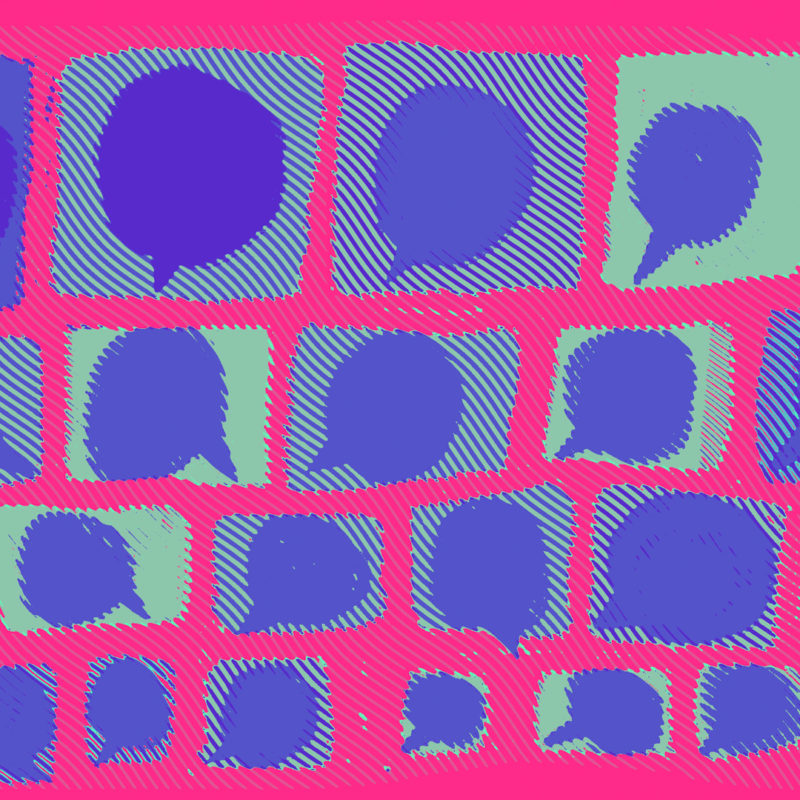Being online can be an overwhelming experience especially when it comes to misinformation, toxicity and inequality. Many of us have the option to disconnect and retreat from it all when the going gets tough, but what if your job requires you to be constantly immersed in online culture, like the many people who work in digital and social media?
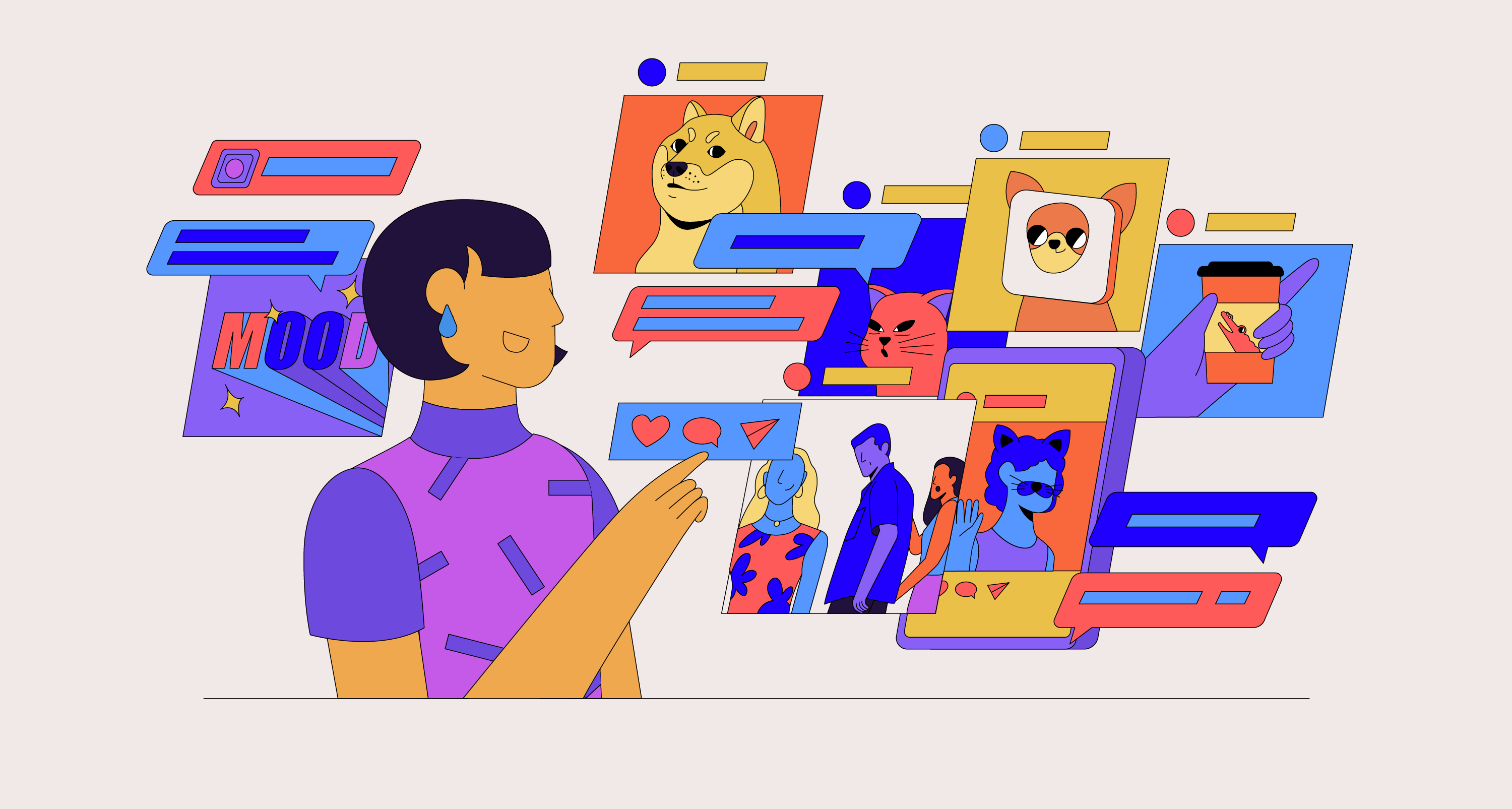
Navigating the ever-changing landscape of managing brands on social media requires more than the ability to string together a pithy sentence. In reality it requires emotional acuity, the ability to be creative and think strategically–all rolled into one human. Yet, it’s often a role that’s undervalued and treated as though anyone can do it. Interns don’t run social media accounts for brands, but you know who does? Women.
Social media has been dubbed the pink ghetto, with 70-80% of women making up the invisible labor that powers the consumer facing personas of brands. Job listings for social media and digital roles are frequently gender biased and often have an unspoken emotional labor component, since managing social media also comes with the requirement of handling customer service.
More often than not the “ideal” social media worker is one that has both their online and offline lives devoted to being active on all platforms, creating a potentially problematic expectation that to be successful in social media you must be “always-on.” This, coupled with the often toxic nature of social media, can have a significant emotional impact that carries over into the personal lives of people in the profession.
As a team of women running social media at Firefox, we wanted to learn more about the experiences of other women in the field. We had an open conversation with several women currently working in high profile social media roles, from leading the voice of an entire state to defending rights for US citizens. They share what it’s like to be extremely online and what we can all do to create an internet where a person’s demographic characteristics do not determine their online access, opportunities, or quality of experience.

How does being extremely online as a brand impact the way you’re online as an individual? Or your life offline?
Pearl Gabel: I don’t have much of an offline life [laughs]. I always have a hard time with my own personal social media. For me it’s easier and more fun to run other people’s accounts.
So yeah, I wake up, hop on Twitter, stay on top of the news and listen to my podcasts. I also consult with our digital assistant. We balance each other out and bring an intergenerational perspective to our work.
Sarah Peters: I definitely feel like I’m online more than the average person. I generally have to know viral things happening on the internet so I can share them and talk about them, but at the end of the day it can impact my life just constantly fighting the urge to check my phone.
Janna Zagari: It’s exhausting and exhilarating to be extremely online. Thanks to constantly being on Twitter, I always know what’s going on. I hear news right when it happens, see memes days before other people do, and am, as mentioned above, extremely online. I sometimes wonder if I’m extremely online because of the brand, or if the brand is because of me. There really is no life offline for me. When your personal and professional lives are so intertwined with the internet it’s hard to disconnect.
Emily Patterson: When you work online, sometimes it feels like you have the best, most natural, easiest job in the world — and other times it feels like that job has ruined the easiest, most natural part of having a social life in the 21st century. It’s hard to learn that when you are off work, scrolling through your favorite platform in your free time, you don’t have to switch immediately into work mode because you thought of a good tweet, or saw something the brand could interact with. I spent a lot of time earlier in my career compartmentalizing what I want out of engagement as a principle or organization, versus that real human connection I’m looking for when I post on personal accounts with family and friends.
What’s the best (and worst) experience you’ve had on social media as a professional?
PG: The best part of my career has been seeing things I do make a change in the world. In politics it’s this real life thing where you can be a part of policies like raising minimum wage. Watching that happen and being part of that narrative on the digital end is really cool. The worst part of my career has been a feeling of helplessness even though I’m giving my blood, sweat and tears to something. It’s a very frustrating feeling, and I know a lot of people have experienced that in their jobs.
JZ: One of my absolute favorites was when I was working at Marvel as their social media coordinator. I made it my personal mission to promote The Punisher as much as possible because I loved the creative team at the time (Greg Rucka and Marco Checchetto). It turns out that Marco drew me into Punisher #16 but I had no idea. I found out on Twitter as people started tweeting the comic page and asking if it was me! It’s one of my most treasured online memories.
My worst professional experience online was when I was working as a social engagement strategist at Disney. A school shooting happened and we decided to go dark on social for almost a week. It was a terrifying time, and we had to keep asking ourselves if it was worth inserting our voice into the conversation. It just didn’t feel right to post happy, whimsical copy while everyone was grieving. This event really shaped my thinking moving forward, and I carried that experience with me to future positions.
SP: Being a social media manager can be stressful, because you’re basically on the front lines of the brand. You see all of the positive comments, but also all of the negative comments too. People sometimes can be mean on the internet and say things without thinking about the person on the receiving end of that message. There’s been many times I’ve gone home after work and thought about what I’ve seen and I don’t know how to feel about it. Basically, I tell myself that it’s not directed at me personally and I have to move on from it.
One of the best experiences I’ve had was when I worked in professional sports and a funny video we made went viral across the world and got millions of views. The potentially viral nature of connecting the world to your content is really rewarding.
EP: We teamed up with Chrissy Teigen once through Twitter DMs and ultimately raised $1M online to fight family separation, that was an incredible experience at a really important moment. The absolute best moments were the shared victories, when our audience joined us in making so many phone calls, sending in so many letters, and showing up to protests in such large numbers, that our online action became the momentum needed to force powerful people to follow the will of the people.
A bad experience that stands out to me was the first time that a social media post I made backfired with our audience. I turned it into a valuable experience by listening to what our audience had to say and making changes in our approval process that we still use years later, but I can vividly remember how sick to my stomach I felt that day.
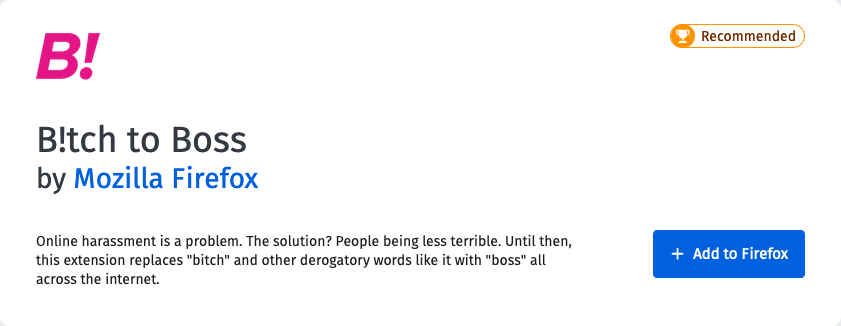 How has social media changed since you started your career? What would you like to see in the future?
How has social media changed since you started your career? What would you like to see in the future?
PG: I want to see places where we can all co-exist together and find commonalities. The concept of a New Jersey page is a tribal thing, but it’s unifying in a way. @NJGov is tripartisan; it’s something everyone can get behind even though it’s political. I hope to see that more.
We all seem to be going in the opposite direction in our general community spaces online, but I’m hoping we can find unity as we move forward. The internet was supposed to be something that brought us all together, at least that concept or that big beautiful idea. I still am hopeful that could happen and I think we’ve made something on a small scale of that [with NJGov].
SP: Early on, the way you could share content wasn’t as advanced, but now it’s really evolved in terms of the type of content you can share and how you share it. It also seems like there’s been a movement of putting content directly on social media for people to engage with rather than link away to your website.
JZ: When I started my career there was no Instagram or Snapchat. Tumblr was a fledgling platform. Twitter was just taking off, and Facebook was the giant in the room. Everything is different now, from the platforms that ebb and flow in popularity to the new ones cropping up all the time. Everyone lives their lives online. I’ve always been on the brand side of social media, and I prefer it that way. I love being able to shape the message of how a brand portrays itself online. I’d love to see a little less hate for brand accounts, and a lot less hate for the “interns” who run them.
EP: I have really enjoyed watching all of the major social media platforms become multigenerational, even when they’re obviously favored by specific age groups. On the professional front, even though plenty of people still perceive social media managers as “whoever the youngest person in the office is,” or literally an intern, our industry counterparts and mentors have acquired 10+ years of experience, are managing large budgets, and doing incredibly exciting creative work, which I didn’t have as many examples of when I started my career.
The full range of opportunities of small dollar fundraising and movement building on social media are still mostly untapped, so I’m excited to see where it takes us in the future. I’m also interested to see how our industry handles the ethical dilemma facing workers in community moderator roles on the biggest platforms, and how we grapple with the impact mass, coordinated disinformation can have on elections or public crises.
Have you personally experienced or seen toxicity online?
PG: I know a lot of people who have gotten verbally insulted or received negative comments. It’s happened to me a couple of times in the past, especially as a journalist. As women you have to steel yourself against a lot of negative onslaught. Particularly when you’re doing anything that gets attention.
SP: Early on I didn’t encounter it as much because I worked for a sports team and everyone was always happy to see your content, and you didn’t really see negativity unless your team wasn’t doing well. Now I see a lot more negative comments because of the nature of the company I work for. The comments aren’t personal attacks at me, but sometimes it feels that way. You just have to laugh it off and know that it’s not about you and the person complaining is just frustrated. My job is to understand what they’re going through so I can help them or provide feedback so other people don’t have to have that same experience.
People share a lot of their lives online, from thoughts going through their mind to photos. As someone who lives and breathes social for a living, how do you approach personal sharing and the potential privacy challenges that come with it?
SP: Most of my [personal] accounts are set to private, except for a few platforms. I pretty much only share information that I wouldn’t mind the rest of the world seeing on my public profiles. Most of my experience on social media is digesting other people’s content rather than posting my own.
JZ: In my early career, I wanted to present a clean, consistent face to the world. I didn’t curse, talk about sensitive topics, and I would never, ever post a photo of myself drinking. As time went on, and being online became more about being your authentic self, I let more and more of myself shine through.
Now, I talk about politics (a lot), my health, and love posting photos of pretty cocktails. As women, we need to be careful whether we are online or offline. I have too many friends who have been doxxed and harassed and I have a healthy block list of my own as well. People take a lot of liberties when they are behind a screen. I’ve seen more and more friends turn their public accounts private because they couldn’t take it anymore. I’d love to see some of the toxicity dissipate as social media continues to evolve.
EP: I’m not sure I have a great answer here other than it’s something I think about a lot. As someone who fell into the young millennial age group, and who is also a social media manager, I didn’t always believe that I was allowed to expect to have control over my privacy, and working in this industry has helped me reclaim some of that empowerment to own my information.
For “privacy” from my personal audience, I am selective in what I share, and I have temporarily made my accounts private when posts we make are going viral and people show interest in tracking down the individuals behind the brand. For “privacy” from bad actors online or government surveillance, I just try to follow the same common sense privacy measures that I think any users would, like using a webcam cover, avoiding public Wi-Fi whenever possible, and sticking with devices, web browsers, and search engines whose companies share my interest in privacy rights. I think it’s important to note that even those of us who work in this industry are just trying to do the best we can, and we aren’t always sure of how to carve out safe spaces online for ourselves either.
What assumptions do you want to change about being a woman working in social media?
SP: Working in social media is more strategic than some people may think. There’s a lot of policy, planning and thought processes that go into what people actually see shared by brands. I also think there are many different opportunities for women to have a role in industries that are perceived as male dominated and that includes roles beyond social media.
PG: Embodying New Jersey has been really powerful for me.
Imagine New Jersey as a person. It’s a real underdog that thinks of itself as the best, because it is the best. It’s always maligned, always made fun of. It’s a bullied state, but it’s awesome and it knows it’s awesome. So it stands up for itself and says f*ck the haters, haters mad, big state energy. That Jersey attitude has made my own presence as a woman online more powerful. When I see something negative or critical about me now, my initial thought is just “haters mad.” When you look at negativity as “haters” you can kind of elevate yourself away from that onslaught. I’m a Jersey girl myself, but I haven’t always had that strong attitude. I feel as we’ve created the personality for NJ Gov it’s also become mine, without the weight of having to be Pearl or a woman.
Who is another woman in the industry you admire and why?
JZ: I will always call out Amanda Brennan as my internet hero. We worked together at Tumblr back when I led the social team, and every day was wonderful with Amanda next to me. She now leads the content insights and social team at Tumblr, and after being there for over six years, is synonymous with the platform. She’s whip-smart, categorizes data in her sleep, and used to be nicknamed the “meme librarian.” I love where she’s taken the Tumblr social channels and can’t wait to see where her career continues to lead her.
EP: My favorite Twitter brand accounts, SparkNotes and Monterey Bay Aquarium are both managed by women, Courtney Gorter and Anne-Marie Alden, respectively, and I admire their work. I also admire a lot of young women, like Isra Hirsi, co-founder of the U.S. Youth Climate Strike, who are naturally creative and talented, and are cultivating their skills to build large audiences and engage them in movements online.
SP: My favorite woman to follow is @thecaitcode. Caitlyn is a childhood friend of mine – last year she quit her job in another industry and learned how to code in six months. She started a Twitter account to share her journey through the bootcamp process: finding a job, getting a job offer, and now what it’s like to work as a developer. It’s been so inspiring to watch her grow professionally. She has a really good balance of sharing professional advice with a fun and positive flair. I love how open and honest she is sharing advice, tips, asking q&a from other people in the industry, and also about being a woman in a male-dominated field.
Our pledge for a healthy internet includes this line:
“We are committed to an internet that includes all the peoples of the earth — where a person’s demographic characteristics do not determine their online access, opportunities, or quality of experience.”
What do you think needs to change in order to get there?
SP: Because people can hide behind keyboards, sometimes people feel like they can attack women and other minorities online without repercussions. In addition to a full culture shift away from the toxicity, I think social media companies need to be more accountable to prevent online harassment and ensure their platforms are an inclusive space for all.
EP: One huge “change” I think could help more of us start moving forward together would be to simply agree that the internet is the real world now. For better or worse, the things we say and do online have real power. The changes we need are deep and systemic, from ensuring that our access to the free and open internet here in America isn’t up to the whim of the FCC, to reining in government surveillance of activists online, to providing worker protections to whistleblowers in big tech, and those same tech companies getting serious about the resources needed to enforce their own moderation rules fairly and ethically for users and staff. An internet for ALL of us would be an internet for creators, activists, people engaging with content in many different languages, people who navigate these platforms with assistive technologies, sex workers who need to be able to conduct their business safely and securely, and more. The big, powerful actors have to get serious about making this a reality — but we as users do too.
— by Liz Dennebaum
